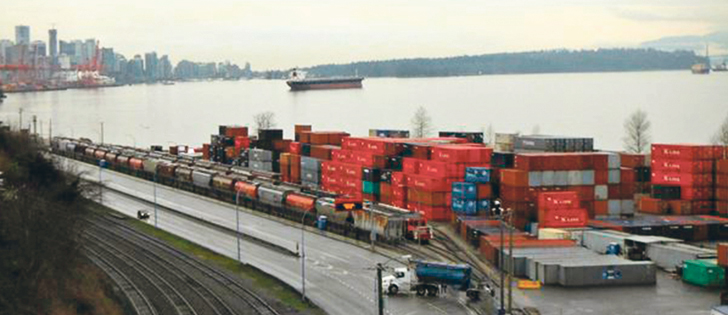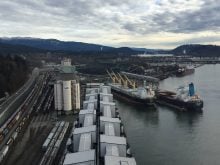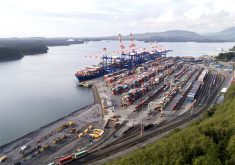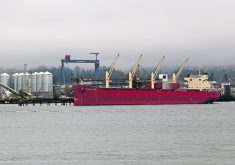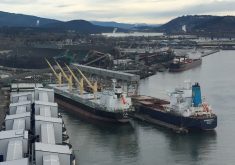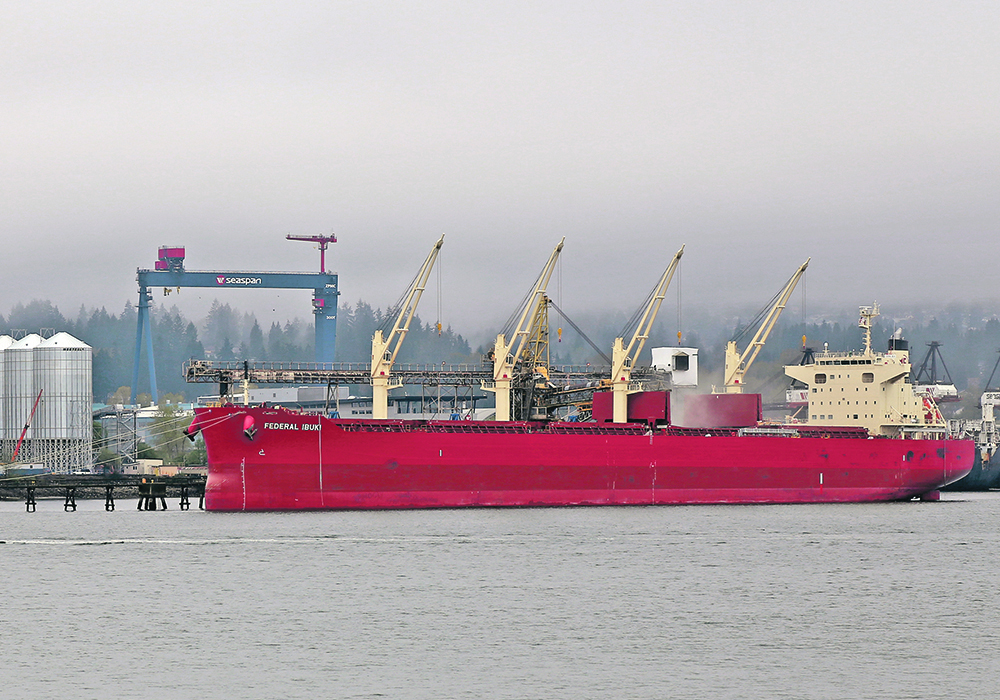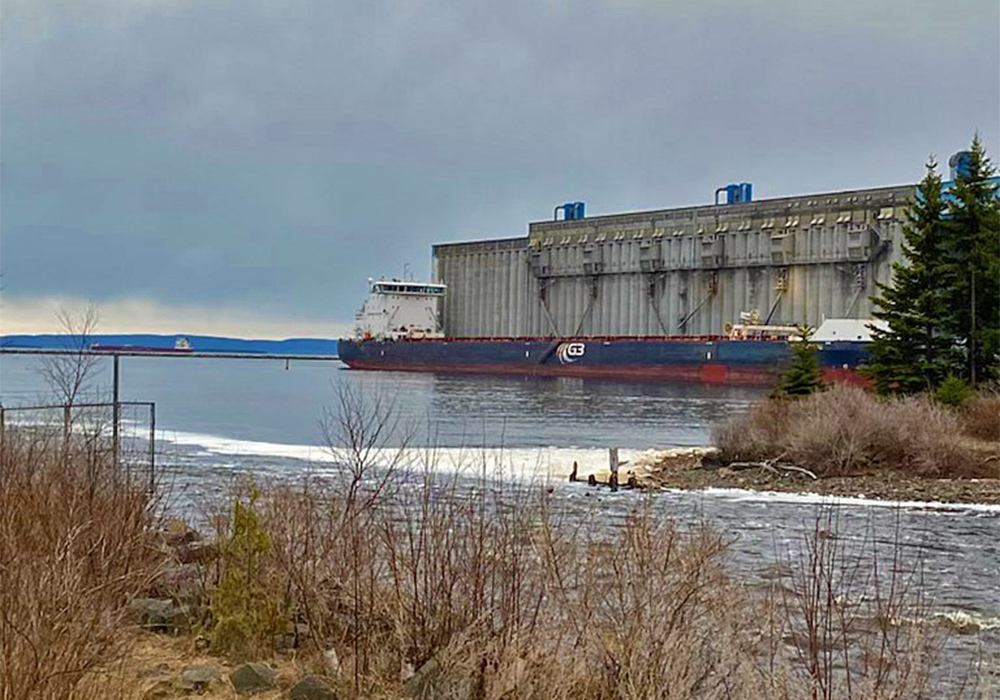A west coast transloading and logistics company that specializes in containerized grain and pulse crops is rebuilding its facilities at the Port of Vancouver.
Columbia Containers will spend approximately $26 million to build a new transloading facility on the south shore of the Burrard Inlet.
Construction started earlier this month and is scheduled for completion in April 2018, said the company’s general manager Dean Giles.
Columbia is owned by Providence Grain Solutions, a farmer controlled grain company based at Fort Saskatchewan, Alta.
“It’s a complete rebuild of the facility,” Giles said.
Read Also

Farmers urged to be grain-safe this fall
Working around grain bins comes with risk, from farmers falling to drowning in grain: Experts have five tips to help avoid grain-related accidents this harvest.
“Basically, it’s going to be a state-of-the-art facility with dual rail track unload and dual container load-out capabilities.”
Columbia’s west coast services include container storage and management, logistics, freight forwarding and grain transloading.
Bulk commodities — primarily peas and lentils — are shipped to the company’s facilities by rail.
Contents of the rail cars are then transloaded into shipping containers which are trucked off site to nearby container handling facilities and transferred onto outbound ocean vessels.
Columbia’s existing transloading facilities handle 650,000 tonnes of grain and special crops a year.
However, the facilities were built decades ago and are no longer able to meet growing demand for transload services.
Throughput capacity is expected to increase to one million tonnes a year when the expansion is completed. Eventually, annual volumes could increase to 1.3 million tonnes.
“We anticipate an immediate 50 percent increase in capacity with the ability to double our current capacity in the future,” Giles said.
“The facility itself is built as a 1.5 million tonne facility.”
Columbia will continue to use its existing facilities during the rebuild, so transload volumes will not be affected during construction.
“During the build, we will be fully operational,” Giles said.
“It won’t be impeding our current facilities or our current customers.”
The expansion will coincide with another Port of Vancouver project that will see a nearby traffic route reconfigured to accommodate additional rail infrastructure on the south shore.
Columbia handles a variety of agricultural products including pulse crops, wheat, flax and rye.
It also handles all of the malting barley that is shipped abroad to overseas maltsters.
“We can handle generally any grain product right now and we don’t anticipate our product mix changing or the direction of our business changing,” Giles said.
Exports of containerized grain have been increasing steadily during the past few years.
Total exports of containerized cereals and pulse crops topped 3.13 million tonnes last year, up from 1.91 million tonnes in 2011.
“Obviously, volumes have increased across all container loading facilities along with production volumes in the country,” Giles said.
“This year, we may see fewer acres going in as far as pulses are concerned, just based on pricing and competitiveness … but for the most part, volumes have been steadily increasing.”
Columbia’s expansion will in-clude 11,000 tonnes of on-site storage capacity.


